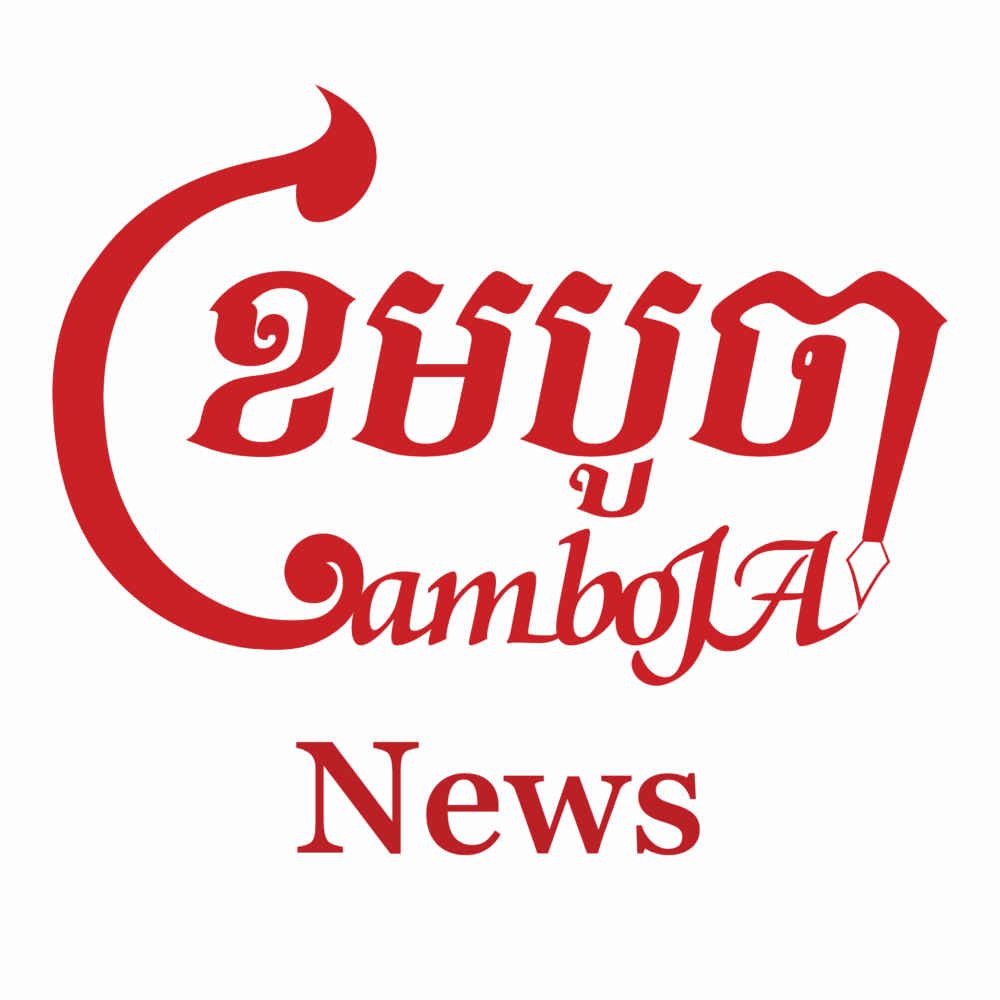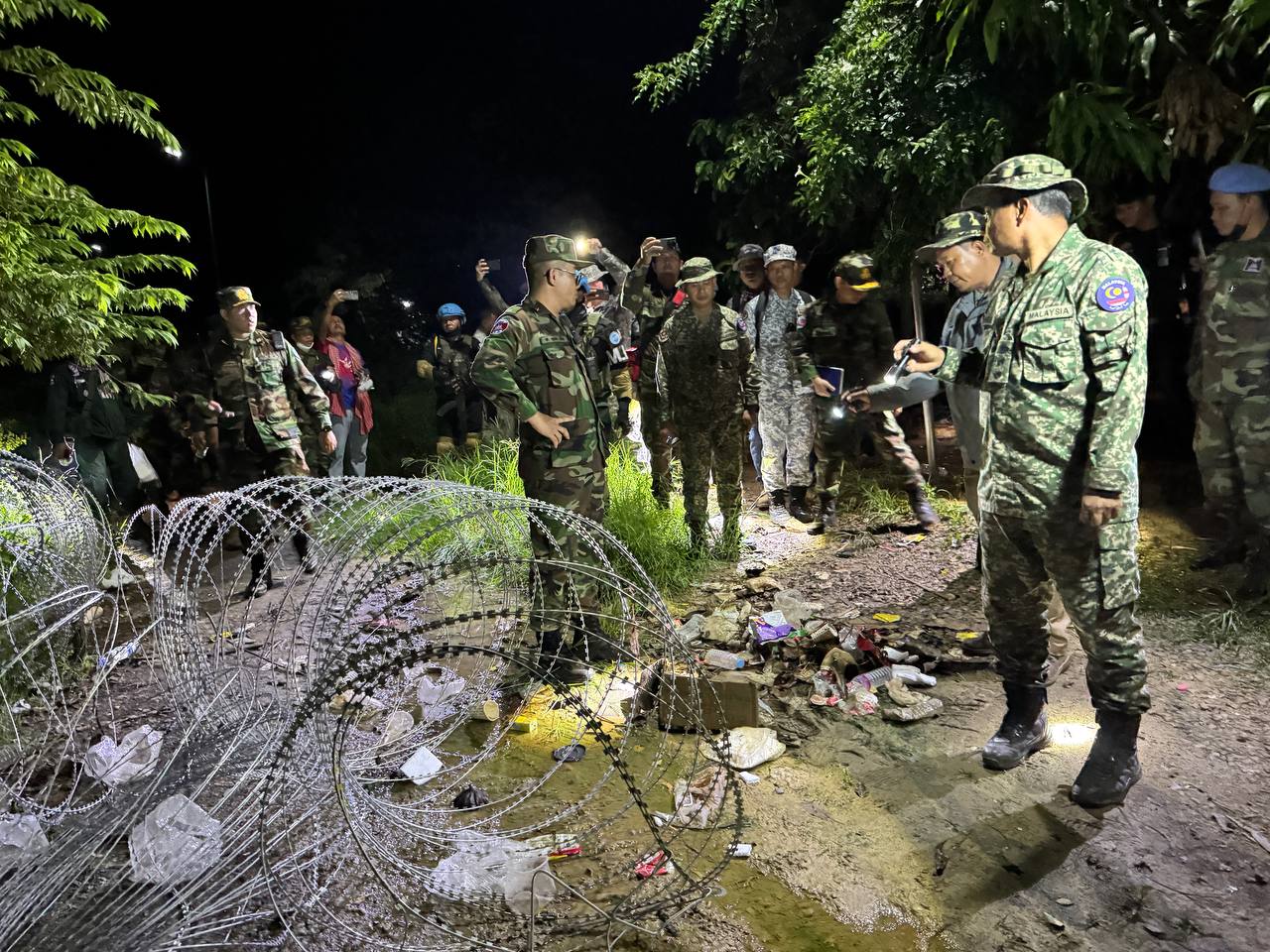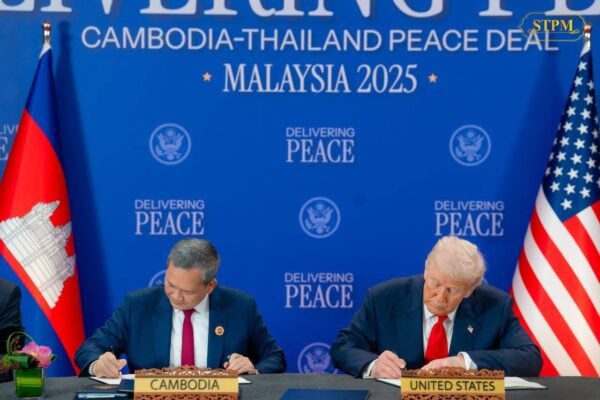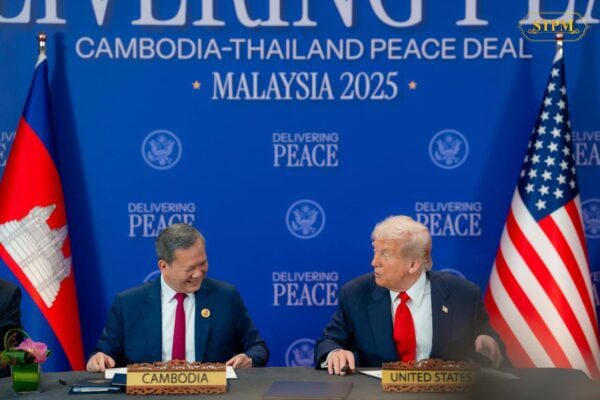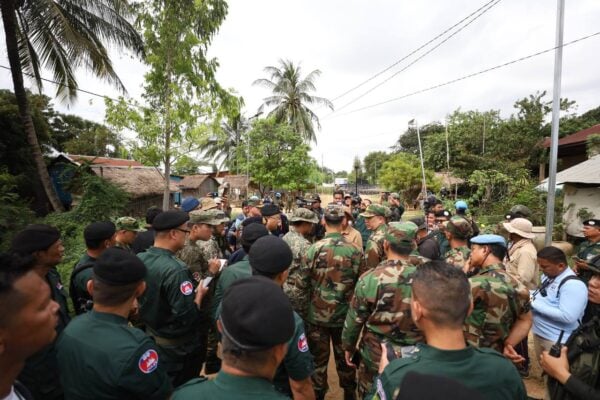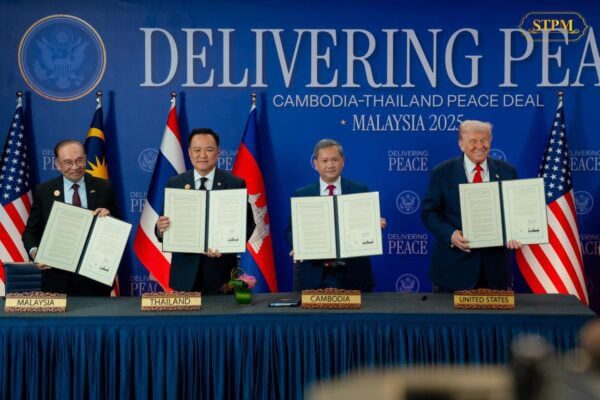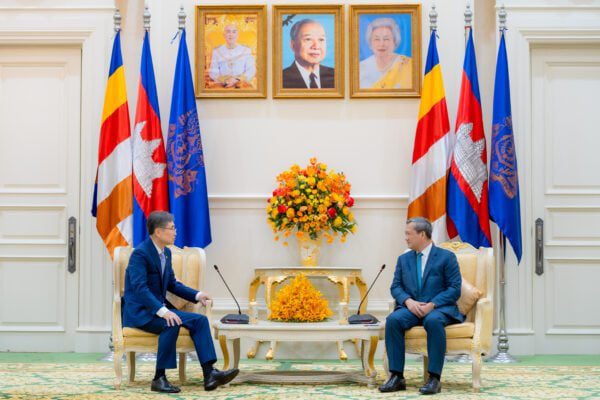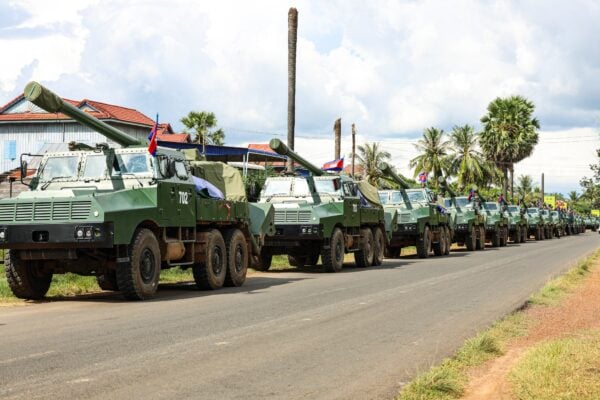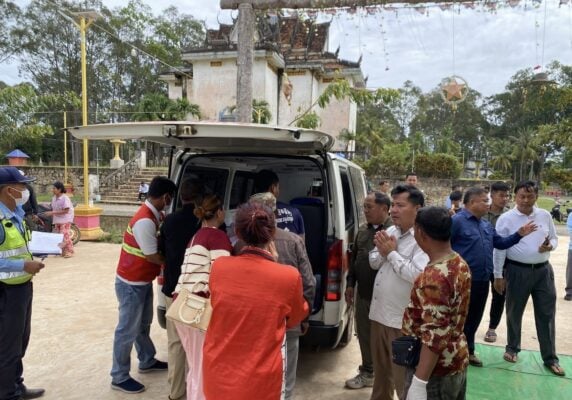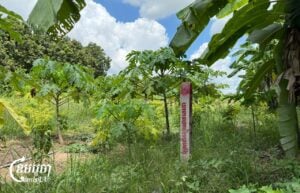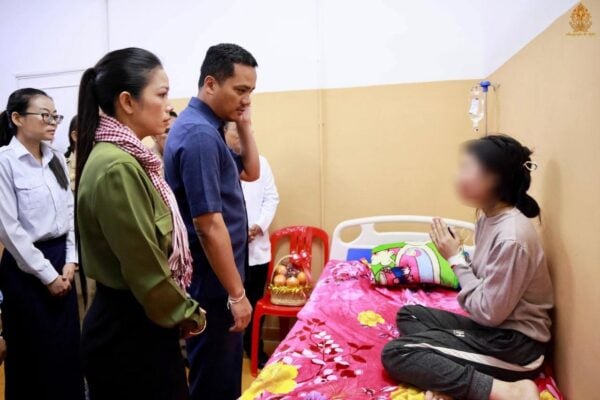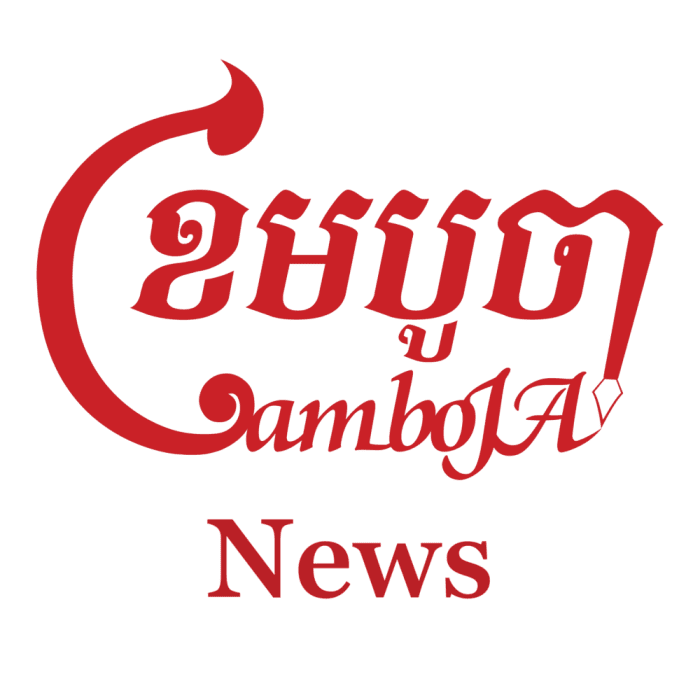Prime Minister Hun Manet said he sent letters to leaders including Malaysia’s Anwar Ibrahim, China’s Xi Jinping and U.S. President Donald Trump on Wednesday night after clashes between Cambodian villagers and Thai soldiers on the border of Banteay Meanchey province.
In a statement posted on Facebook, Hun Manet said he sought their support to ensure full and effective implementation of ceasefire agreements between the neighbors, while accusing Thai forces of expanding disputed zones and evicting villagers.
The U.S., Malaysia and China helped broker a ceasefire in July after a five-day border conflict that killed at least 48 people.
Hun Manet said he also sent diplomatic notes to French President Emmanuel Macron, U.N. Secretary-General António Guterres and U.N. General Assembly President Annalena Baerbock.
He further alleged the Thai military intends to seize 17 other locations in border provinces further south, including Pursat and Koh Kong, without specifying the areas. He cited “credible sources” for the information.
Pursat deputy governor Hiem Khuon and Koh Kong provincial spokesperson Chhit Rattanak said they did not know the exact locations of the alleged 17 sites but said provincial police were stationed along the border.
At least 28 Cambodians, including civilians, monks and one soldier, were injured in Wednesday’s clash by rubber bullets and tear gas fired by Thai troops, authorities said. Thailand’s military said an unspecified number of its personnel were also hurt.
The clash took place in a disputed frontier area, which Cambodia identifies as Prey Chan village in Banteay Meanchey and Thailand claims as Ban Nong Ya Kaew village in Sa Kaeo province.
Thai authorities erected razor-wire fences in the area last month, and civilians from both sides have staged protests there for weeks.
Many Cambodian villagers along the Banteay Meanchey border have reportedly been barred from returning to their homes and farmland since Thai forces installed the barricades.
Twenty-five families have already been displaced from their homes in Banteay Meanchey, according to the statement posted by Hun Manet.
Suon Vanna, 59, who is being treated at Mongkul Borey Hospital, said he suffered severe eye pain, dizziness, nausea and chest tightness after inhaling smoke from canisters fired by Thai troops.
He told CamboJA News the clash Wednesday began after Thai soldiers warned villagers not to dismantle razor wire, threatening to shoot anyone who did. When villagers removed the wire in front of them, the troops responded with tear gas, smoke bombs and air guns.
Thailand’s Foreign Ministry said its forces acted within Thai territory and with restraint, accusing Cambodian villagers of unlawful incursions that violated the ceasefire.
The clash came the same day the governors of Banteay Meanchey and Thailand’s Sa Kaeo province met at the Poipet International Border Checkpoint for talks.
Members of the Interim Observer Team (IOT), a group of observers and military attaches led by Malaysia to monitor the ceasefire, reportedly visited the site soon after the skirmishes, though their findings have not yet been released.
Newly elected Thai Prime Minister Anutin Charnvirakul deferred responsibility for managing the clashes to the military, saying Sa Kaeo province remains under martial law and his cabinet has not fully assumed office.
Touch Sokhak, spokesperson for Cambodia’s Interior Ministry, said local police and authorities in Banteay Meanchey are on standby to advise and protect residents, but they are prohibited from carrying weapons to avoid escalation.
